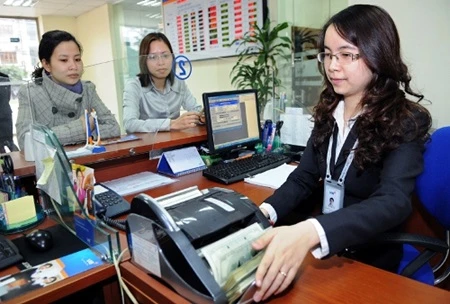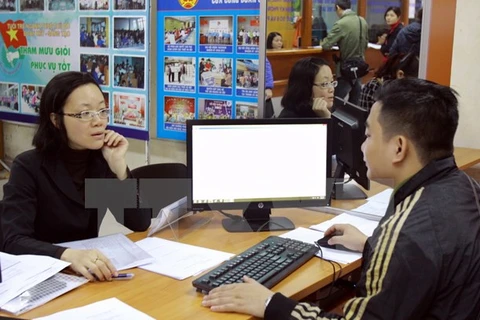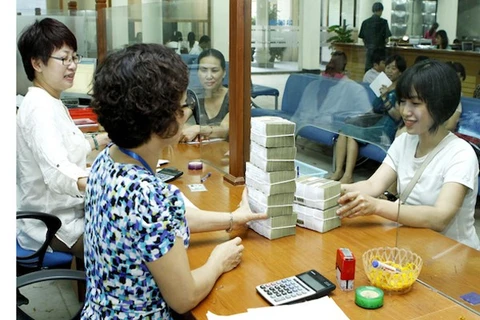Deputy Finance Minister Huynh Quang Hai speaks with Nhan Dan (People) newspaper about how the Government has improved tax collection.
* What makes you confident that the Ministry of Finance will meet its revenue collection goals for 2015?
It is estimated that in the first seven months of 2015, a total of 404.36 trillion VND (18.5 billion USD) in state revenue was collected, an increase of 15.7 percent compared to the same period last year. The sum accounts for 63.3 percent of the 2015 State budget collection goal.
There are various factors contributing to this success, particularly increases in the private business sector tax; environmental protection tax; personal income tax and housing and real estate tax.
Meanwhile, tax collection from the state owned enterprises and foreign invested enterprises, in the period under review, also recorded remarkable successes compared to the same period last year. This is an indication showing that production has gradually been restored and gradually stabilised – a solid foundation for the sustainability of the state budget collection.
In the past seven months, tax offices nation-wide have carried out measures to ensure high efficiency in tax collection and management, including inspection activities, anti-trade fraudulence and smuggling and bad debt settlement.
In addition, the Ministry of Finance has developed several scenarios on the impact of the fall of international crude oil prices to balance the state budget. I'm confident that our ministry's mission on budget collection as set out by the National Assembly will be fulfilled, even surpassed by the end of 2015.
* What are the main tasks that the finance ministry will focus on in the remaining five months of 2015?
We understand that there remain many hurdles during the course of State budget collection. But we vow to do our best to achieve the target set by the National Assembly. We have come up with many measures. But here I just want to mention three main measures as follows: Firstly, to help enterprises increase their production and revenue; Secondly, to put a cap on inflation; And thirdly, to stabilise the macro economy.
In the meantime, we have tried to accelerate the administrative reform process in the field of taxation and customs procedures with the ultimate objective to provide the most favourable conditions for enterprises during their transactions with taxation offices. We hope by late this year, 100 percent of enterprises will pay taxes on-line.
Regarding enterprises having failed to pay their taxes, the Ministry of Finance will continue to make public the names of these enterprises in the mass media.
We vow to do our best to increase domestic revenue and import-export trade to compensate for the revenue losses from crude oil.
In short, we want to secure sustainability from domestic revenue. This is a pivotal factor helping enterprises to restore their production and secure a sustainable tax revenue for the State coffer.
* In 2015, there are many factors that will affect the collection of state tax revenue, particularly the drop of the crude oil price. In your opinion, to secure stable revenue collection, what measures should we introduce?
In my opinion, aside from the previously mentioned tasks, the Finance Ministry must continue to implement the Prime Minister's directives in 2015 regarding the management of the State budget.
For example, the ministry must strive to cut back on costs and expenses, and at the same time improve our management capacity.
In addition, it is important to speed up capital disbursement in infrastructure construction, particularly projects using government bonds.
Last but not least, it is important to follow the market economy with a road map for State regulations on essential commodities and goods.
I'm confident that the on-going administrative reform and the practice of thrift and against waste as well as the work of financial inspection and supervision will help us achieve targets set for the year 2015.-VNA
























